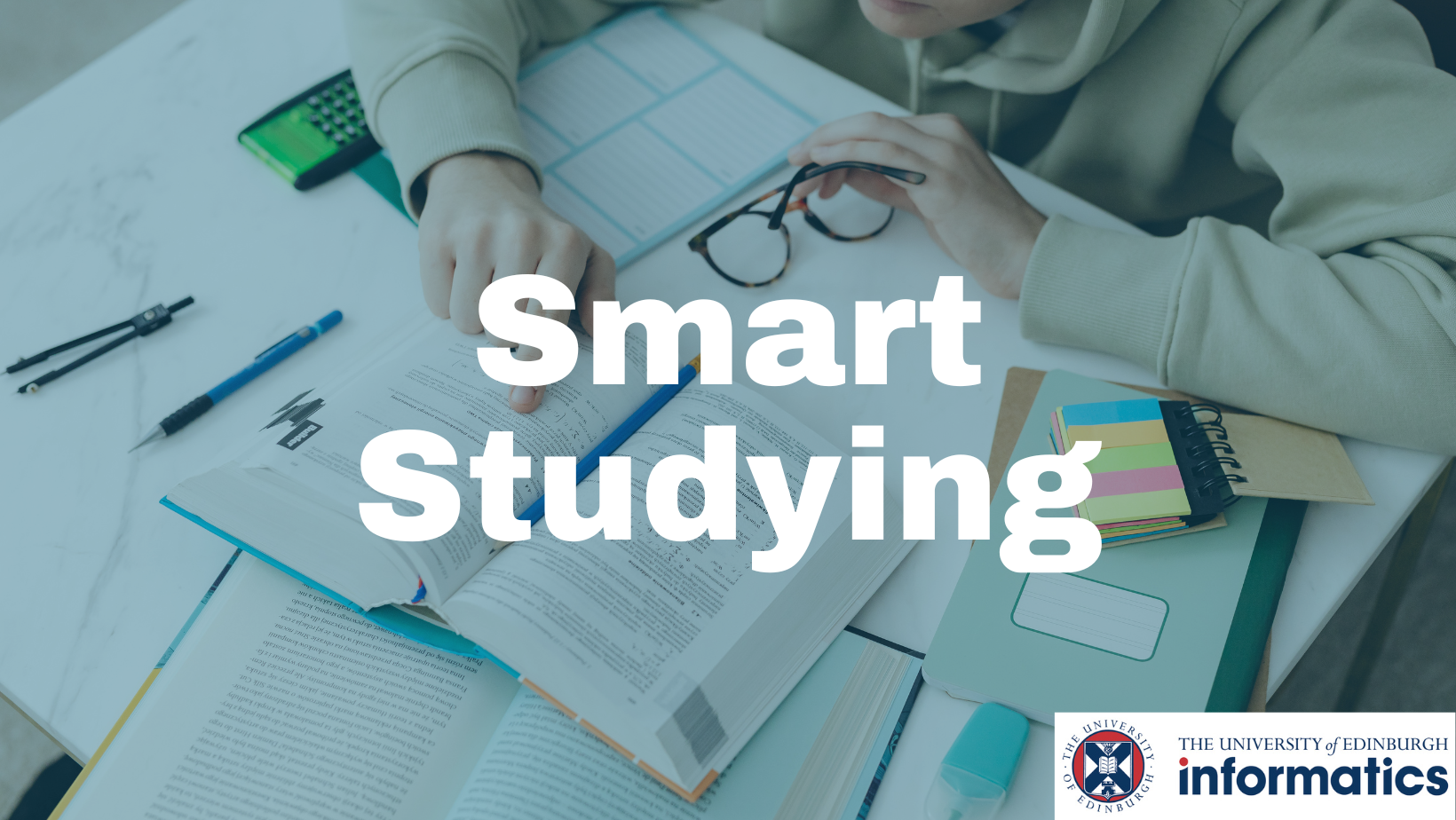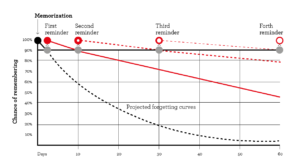Smart Studying

Long-term memorisation is depended on the way you study. Being able to study efficiently is a critical skill to develop at your time at university, so read further for more information.
Introduction
Do you ever feel like you are just mindlessly re-reading your textbooks, watching lectures, and highlighting key points but none of it is going in? There may be many reasons why this is, but it is likely to do with how you are studying. Smart studying means you can spend less time drinking unhealthy amounts of coffee in the library and more time doing whatever you like!
Study Less Study Smart
Studying more is not necessarily studying well, it may worsen your performance overall. A lecture titled ‘Study Less Study Smart’ delivered by Dr Marty Lobdell, outlines effective study techniques which are backed by research.
Video – Study Less Study Smart
Tips for Smart Studying
Chunked sessions
Instead of studying for hours consecutively, break your study sessions into chunks. After the end of a long study session, give yourself a tangible reward. I personally work in 30 minute chunks with a 5 minute break afterwards.
Create a dedicated study area
The environment that you are in majorly affects your ability to focus. If you are surrounded by distractions you will find it harder to truly focus in a study session. I found that studying in my flat is particularly hard because I associate it with socialising and relaxing. Whenever I wanted a study session, I would always go to either the library or a coffee shop for a relaxing environment. If you are in a particularly noisy area, a pair of noise-cancelling headphones work amazingly at blocking out noise and distractions.
Study actively
Whilst you are studying, make sure you are engaged with whatever you are studying. Ask yourself:
- What is it I’m learning just now?
- Is it a concept or a fact?
- How does this influence the wider field?
Summarise what you learn
After learning something new or finishing a study session, summarise what you just learnt. Personally when I do this, I type down a summary of what I learnt on my OneNote. This allows me to look back on the previous study session and assess what I have done. Furthermore, it can help identify your level of confidence in a topic. If you are able to summarise a topic well and in your own words then you have gained an understanding of it, if not then it may be a topic you would want to revisit in another session.
Use textbooks efficiently
Your academic textbooks are a great resource of gaining a deep understanding of the content. However, you should not read them like you read a novel. You can find more advice on how to read academic text effectively below.
Active Recall and Spaced Repetition
Active Recall and Spaced Repetition are two of the most effective study techniques. Active recall is all about testing yourself and recalling information to help move it into your long-term memory. Spaced repetition is about
 repeating something at different intervals to help combat the ‘forgetting curve’. The forgetting curve is an illustration of how we forget information over time if we do not prompt ourselves to remember it. If we combine spaced repetition and active recall we can create a way of countering this forgetting curve and getting information into our long-term memory.
repeating something at different intervals to help combat the ‘forgetting curve’. The forgetting curve is an illustration of how we forget information over time if we do not prompt ourselves to remember it. If we combine spaced repetition and active recall we can create a way of countering this forgetting curve and getting information into our long-term memory.
Ali Abdaal covers the topics of evidence-based study techniques and covers spaced repetition and active recall in his How to study for exams video. He also has various studying tips in his Ultimate Guide to Studying blog.
Video – How to study for exams – Evidence-based revision tips
Ali Abdaal’s Ultimate Guide to Studying
Studying Habits
The field of study techniques is very deep and founded on a scientific basis. It is important to find the techniques that work for you and make it a habit. To read more about creating good and breaking bad habits, I would recommend the book ‘Atomic Habits: An Easy and Proven Way to Build Good Habits and Break Bad Ones’ by James Clear.
Blog post originally written by Donald Jennings, Informatics Communications Intern 2022.
Edited by Dimona Videnlieva, Informatics Communications Intern 2023.




2 replies to “Smart Studying”